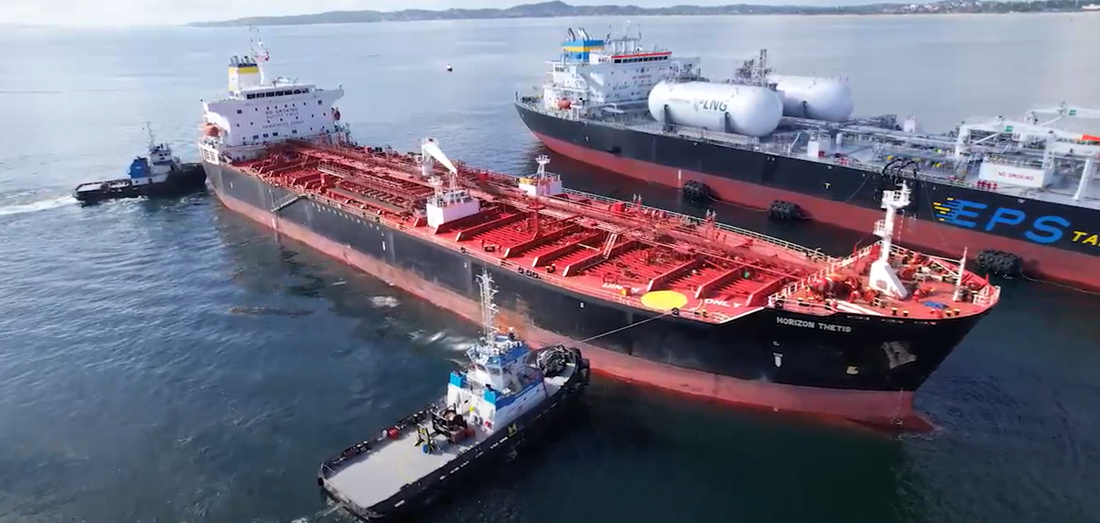
Wilson Sons’ Shipping Agency reports 60% rise in services to ships carrying oil and petroleum products
Sep, 11, 2024 Posted by Sylvia SchandertWeek 202437
Wilson Sons reported that, in the first seven months of the year, its Shipping Agency posted a 60% increase in services to ships carrying oil and petroleum products, against the same period last year. Over 180 vessels were attended.
The tankers imported fuel, exported crude oil and gasoline, and carried diesel and gasoline along the Brazilian coast. Ship-to-ship cargo transfer operations were conducted for the import of refined products and export of crude oil.
Oil, petroleum products, gas and ethanol are strategic segments at Wilson Sons, which relies on the Shipping Agency’s dedicated team. It expanded its market share in tanker services by more than 50% in 2024. Considering ships carrying CPPs (Clean Petroleum Products — naphtha, gasoline, diesel and jet fuel), over the past few months, the Shipping Agency handled around 14% of the monthly calls of these vessels in the Brazilian market.
As new players have stepped into the oil and petroleum products industry in recent years, Wilson Sons has boosted investments in the Shipping Agency’s Market Intelligence and information and data qualification, in addition to investing in technology with the creation of WS Connect, an online customer portal. “Our growth in the segment is a reflection of the group’s strength, its financial soundness, and the operational expertise of its teams of specialists,” says Flávia Carvalho, executive director of Wilson Sons’ Shipping Agency, who adds: “As Brazil’s leading independent shipping agency, we are present in virtually all Brazilian ports that operate oil and petroleum products, with proprietary offices, and exclusive representatives in Europe and an office in China to serve our clients.”
The ports served include the Port of Açu, in São João da Barra (RJ), the ports of Bahia (Salvador, Aratu and Madre de Deus Terminal — Temadre) and Itaqui, in São Luís (MA). In terms of size, the largest ships served operate at the T-Oil terminal, in Açu, and have China as one of their main destinations. These are the VLCCs (Very Large Crude Carriers), with lengths of 200 to 330 metres and widths of over 50 metres.
Wilson Sons’ performance has been above the market standards. From January to July, the industry presented moderate growth in the number of calls involving these ships — around 2% — driven by diesel imports and, more recently, by the increase in gasoline exports.
However, Brazilian demand for fuel will continue to rise throughout the year, according to Empresa de Pesquisa Energética (EPE). In 2024, the estimated growth is 1.3%, or 2 billion litres, after three consecutive years growing more than 4% per year, which represents an average annual increase of 6.4 billion litres, between 2021 and 2023. In the long term, imports are expected to rise until 2028, then a decline in 2030, and a new rise in demand in 2034.
-
Ports and Terminals
Feb, 03, 2021
0
New president at Suape Complex
-
Economy
Feb, 05, 2024
0
Brazilian industrial output ends 2023 with 0.2% surge
-
Other Cargo
Jun, 09, 2021
0
Bracell’s mega factory to begin operating in August
-
Grains
Sep, 19, 2019
0
Corn harvest has estimated record in Brazil


